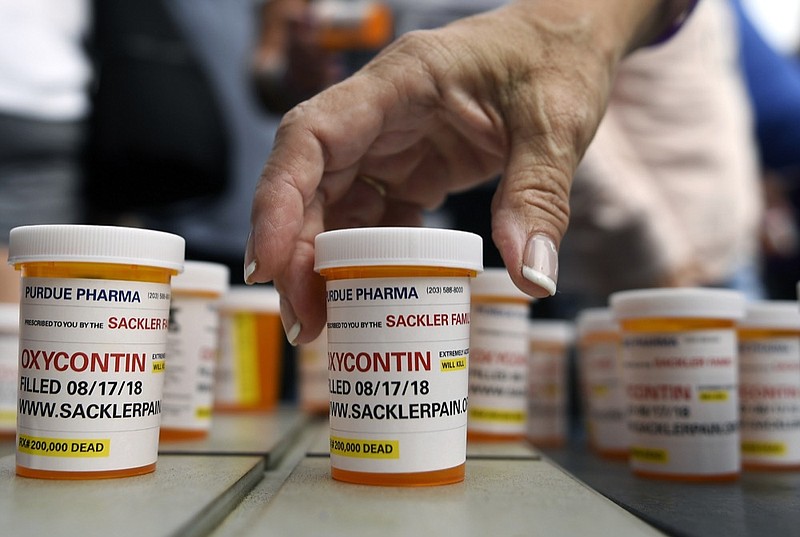NASHVILLE, Tenn. (AP) - Following a sweeping crackdown on doctors accused of illegally prescribing opioids, Tennessee has activated substance abuse resources and statewide call lines to help prevent the suspects' patients from seeking out dangerous street drugs.
Indictments were unsealed this week charging more than 30 medical professionals in Tennessee with illegally prescribing and distributing millions of painkillers.
The charges stem from an investigation by the federal Appalachian Regional Prescription Opioid Strike Force that targeted Alabama, Kentucky, Ohio, Tennessee and West Virginia. A total of 60 people, including 53 medical professionals who wrote 350,000 prescriptions and distributed 32 million pills, have been charged nationally, authorities said in first announcing the charges Wednesday.
At a news conference in Nashville, U.S. Attorney Don Cochran said Thursday that prosecutors worked with national and state health agencies to create a continuity of care plan for patients.
"One aspect of this takedown ... one of the problems, whenever you take a provider, or I would say sometimes an over-provider, of prescription opioids out of the community, all of a sudden you have a patient population that is cut off very quickly from their source of supply," he said. "Sometimes what we see, unfortunately, in other communities is people will go on to heroin or some more problematic street drugs if they can't get the prescription drugs that they're used to."
In Tennessee, the Department of Health, Department of Mental Health and Substance Abuse Services, and the Division of TennCare are working together to make sure that doesn't happen.
"In support of patients affected by these recent actions, we are contacting local medical providers, pharmacies, and emergency departments to discuss potential patient impact and to encourage a swift community response," Tennessee Health Commissioner Lisa Piercey said in a news release.
TennCare members receiving services from any of the affected clinics can find assistance coordinating care by reaching out to their assigned health plans, according to the release.
For addiction treatment services, Tennessee's REDLINE operates 24 hours a day at 800-889-9789. The state also has a 24-hour-a-day mental health crisis line at 855-CRISIS-1 or 855-274-7471.
In addition, regional overdose prevention specialists are working with patients and first responders and distributing the opioid overdose antidote naloxone.
